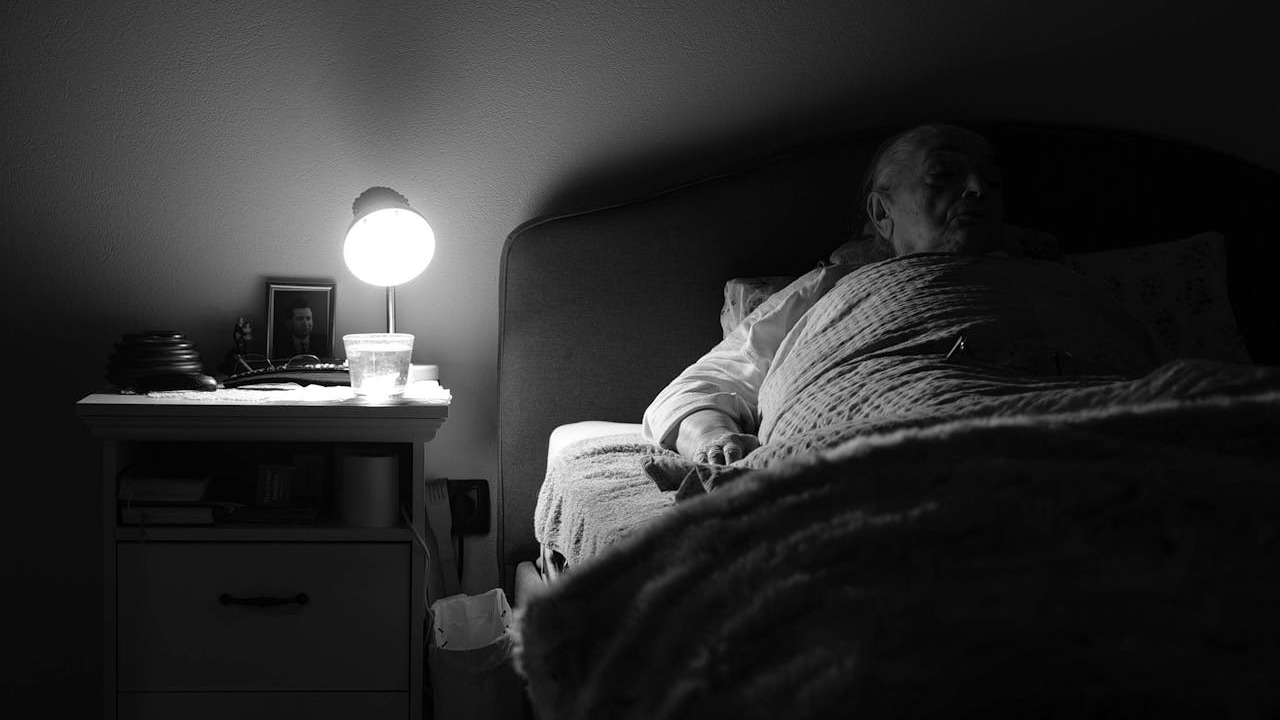Truth & Goodness
Seconds from Midnight: The 2026 Doomsday Clock Hits 85 Seconds
18 February 2026

At the decline of their lives, most people examine their conscience. They regret their mistakes – mistreating their loved ones, not maintaining emotional ties, and lacking care for good relations with family and friends. Looking into the eyes of death, they realize how many dreams they have failed to fulfill. They think and talk about love and happiness. Hardly anyone mentions money or work.
Conscious passing usually affects the elderly or ailing. People who look at their death face different reactions. Not every dying person shares their thoughts – some people close themselves up, suffer in silence, or simply don’t have the strength. But in those who confide before leaving, there are universal reflections.
Not reconciling with one’s family in time, neglecting loved ones and unresolved matters are often recurring motifs in the confessions of the elderly whom I took care of
– says Marta, a nurse of one of the Polish Tri-City (Gdańsk, Gdynia, Sopot) nursing homes.
Every day, she deals with people who pass away. She points out that not everyone musters up to be sincere – many are too sick, including mentally. Moreover, the elderly staying in nursing homes are a specific, not entirely representative group – after all, they were usually put in the facility by relatives or social assistance. People who can pass away surrounded by family tend to be less bitter.
They talk about unfulfilled love from decades ago, about children who went abroad. They regret that they did not follow their hearts but calculated. They sometimes blame themselves, perhaps unjustly, for the fact that, for example, their son’s departure for England and the subsequent loosening of relations are their fault. They look for mistakes in their behavior. They regret not telling their loved ones how important they are to them
– the nurse says.
As she adds – there are deep, serious matters mixed with trivia in their confessions – for example, an unreturned twenty-zloty debt, failure to keep one’s word about meeting for coffee, a soiled dress, a lost book. Even if such, rather ordinary memories appear – about a friend who gossiped, a troublesome neighbor, or a snotty boss, then, surprisingly, they lead to reflection: “Maybe she was right,” “I could have been wrong in her assessment,” “After years I understand her better.”

The thoughts of older people at the very end of their lives became the subject of descriptions and analyzes. The problem has been noticed mainly in the countries of the so-called Western civilization, where religion or tradition plays an increasingly smaller role, and the culturally established patterns are disappearing. After all, even in Poland a few decades ago, during family conversations at the table, there was a theme “Do you remember what your grandfather said before he died?” (there may also be “grandmother,” “uncle,” “aunt,” “father,” “mother,” “the neighbor” and so on.). These were often valuable, memorable pieces of life advice.
Confessions of ailing seniors were managed to be collected and transcribed by Australian nurse Bronnie Ware. She has been taking care of people in the terminal phase for years, earned their trust, and was able to talk to them honestly in the last few weeks of their lives. The stories were posted in the blog Inspiration and Chai, which she later published in the form of a book entitled The Top Five Regrets of Dying.
Ware noted that in the face of death, people became very similar to each other – regardless of their previous financial status, education, and religion. When they felt that they were going to leave soon, they began to appreciate things that were for the taking, but… they failed to achieve them. Their stories were based on similar patterns of reminiscing over certain events in their life. As if in the end they realized what matters most.
The dying patients most regretted the lack of courage in their lives. It was supposed to make them submit to the pressure of the environment and not properly take care of their own needs and desires. Almost every man regretted spending too much time on working and too little on being with his loved ones. The seniors explained that if they could turn back time, they would have organized their professional lives differently – not striving so hard to maximize financial gains. The vast majority of patients regretted not having the courage to express their feelings more fully. They hid their emotions, suppressing what was really inside them. They were not honest with themselves and therefore did not achieve full happiness.
Another recurring theme was the neglect of family and friends. Therefore, they have not managed to maintain good, close relations that positively affect the quality of life. The saddest point, however, is the last one – many of the dying have concluded that they have not lived a happy life. They could not fulfill their desires, fearing the opinion of others. The overwhelming anxiety made them accept compromises and mediocrity.
We recommend: Divination, Astrology, Neo-Cults, and Islam: Christianity Is No Longer in Vogue
The Australian nurse noticed that in addition to common threads that touched on unfulfilled hopes of dying people, some motives were absent. First of all, those saying goodbye to life did not regret not having more money or the fact that they did not gain fame. Nor did the issue of a more successful career come up. None of Ware’s interlocutors expressed any bitterness over having too few life partners.
An addition to the Australian’s account may be the confession of an American anesthesiologist from Idaho – Dr. Karl Zarse from Idaho. His patients, many of them were suffering from cancer – most often resented themselves for not taking proper care of themselves. For this reason, they felt a lot of pain and misery.
Most often I heard: It’s a pity that I didn’t take care of my health much earlier, because I know my life would have looked completely different now
– Zarse recounted.
He also mentioned that regretting not spending more time with one’s relatives was a recurring topic.
Dr. Teresa Weber-Lipiec from the palliative ward of the University Hospital in Krakow also conducted many conversations about death:
Patients, whether they are 3, 30, or 100, often talk about their dreams and they are very similar: They want to meet someone, go somewhere, experience something, get something.
We recommend: Where There’s a Will, There’s a Way? The Key to Success in Life

In Weber-Lipiec’s opinion, people of faith die more easily and in greater peace, as a rule, they also better tolerate the inconveniences of the disease, they more easily accept dying, and they do not insist on the use of procedures disproportionate to the clinical situation. Offspring… is also helpful.
It is harder to pass away for people who do not leave this part of themselves in the world. Having children and grandchildren gives a different dimension to life and alleviates the vision of death
– says the doctor.
She adds that people dying of cancer regret most the fact that they did not make it to apologize to someone, explain something, go somewhere, or try something else.
That they were chasing, not celebrating, not being able to enjoy small and big moments of happiness. That they prioritized titles and money above relationships, and devoted time to acquiring another thing, to prepare their lives so that they would be comfortable and prosperous. And there was no time left for life itself
– sums up Weber-Lipiec.
The convergence between ordinary, average people with celebrities who have shared their opinions on living and dying is remarkable. The famous musician and poet, the creator of reggae, Bob Marley is supposed to have said before his passing:
Money can’t buy life.
No less interesting is the last pre-death confession of the great Napoleon. He reportedly uttered three words defining the meaning of his life. He revealed what he loved the most. It was:
France, the Army, Josephine.
The nurse’s name has been changed, and the employee wants to remain anonymous because of the respect for the feelings of the living people whose relatives she cared for.
Translation: Marcin Brański
Polish version: Czego ludzie najbardziej żałują przed śmiercią? Zaskakująco podobne wyznania

Science
17 February 2026

Science
17 February 2026

Zmień tryb na ciemny